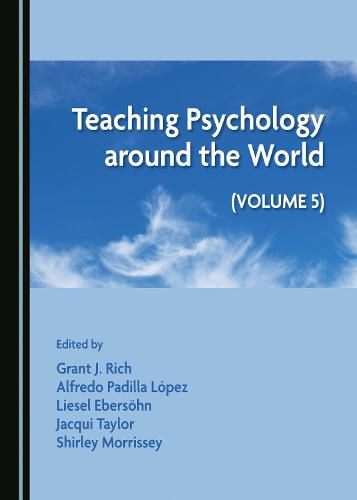Readings Newsletter
Become a Readings Member to make your shopping experience even easier.
Sign in or sign up for free!
You’re not far away from qualifying for FREE standard shipping within Australia
You’ve qualified for FREE standard shipping within Australia
The cart is loading…






This volume serves as a handbook for psychology professors around the globe who aim to internationalize and diversify their courses and curricula, and who seek innovative ideas to enrich their teaching. The work provides an overview of psychology’s globalization, and offers a broad range of suggestions for psychology instructors aiming to internationalize their undergraduate and graduate courses. Topics covered here include practical tips to diversify specific courses, such as abnormal psychology, lifespan development, and psychotherapy, and innovative methods of assessment of student learning. Additionally, a number of chapters focus on describing the training of psychologists, and the history and future of psychology education in various nations and regions. Co-edited by five distinguished, international academics, the thirty-five chapters represent each major geographic region of the world, with authors based in nations in Africa, Asia, Australia and New Zealand, Europe, Latin America, the Middle East and North America. Instructors of cross cultural, cultural, and international psychology and of multicultural education will be especially interested in the book, as will program evaluators, policy makers, and university administrators.
$9.00 standard shipping within Australia
FREE standard shipping within Australia for orders over $100.00
Express & International shipping calculated at checkout
This volume serves as a handbook for psychology professors around the globe who aim to internationalize and diversify their courses and curricula, and who seek innovative ideas to enrich their teaching. The work provides an overview of psychology’s globalization, and offers a broad range of suggestions for psychology instructors aiming to internationalize their undergraduate and graduate courses. Topics covered here include practical tips to diversify specific courses, such as abnormal psychology, lifespan development, and psychotherapy, and innovative methods of assessment of student learning. Additionally, a number of chapters focus on describing the training of psychologists, and the history and future of psychology education in various nations and regions. Co-edited by five distinguished, international academics, the thirty-five chapters represent each major geographic region of the world, with authors based in nations in Africa, Asia, Australia and New Zealand, Europe, Latin America, the Middle East and North America. Instructors of cross cultural, cultural, and international psychology and of multicultural education will be especially interested in the book, as will program evaluators, policy makers, and university administrators.